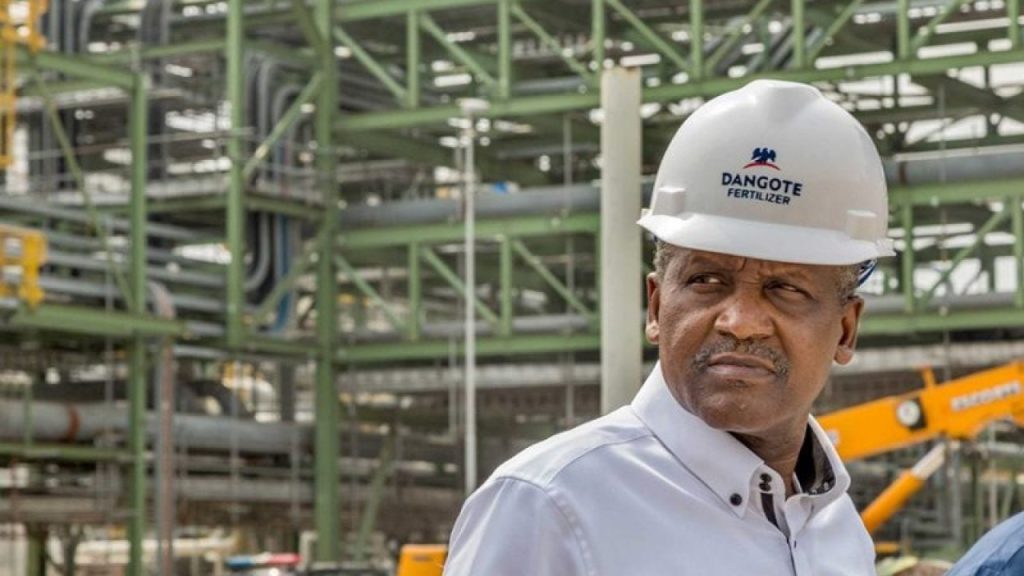Dangote Alleges Regulatory Body Grants Licenses for Importing Substandard Fuel

Devakumar Edwin, Vice President of Oil and Gas at Dangote Industries Limited, has accused International Oil Companies (IOCs) operating in Nigeria of deliberately undermining the new Dangote Oil Refinery and Petrochemicals. Edwin claims these companies are intentionally raising the price of local crude oil to force the refinery to import crude from faraway places like the United States, significantly increasing costs.
Speaking at a one-day training program organized by the Dangote Group, Edwin also criticized the Nigerian Midstream and Downstream Petroleum Regulatory Authority (NMDPRA) for issuing licenses indiscriminately to marketers, allowing the importation of substandard refined products into the country.
Edwin highlighted that although the Federal Government had issued 25 licenses for building refineries in Nigeria, only Dangote Group has successfully delivered. He stressed the importance of government support, noting that the Dangote refinery has exported over 3.5 billion liters of diesel and aviation fuel to Europe in recent months, representing about 90% of its production.
“We deserve every support from the government. From the start of production, more than 3.5 billion liters, which represents 90% of our production, have been exported. We call on the Federal Government and regulators to give us the necessary support to create jobs and prosperity for the nation,” Edwin stated.
Despite efforts from the Nigerian Upstream Petroleum Regulatory Commission (NUPRC) to allocate crude oil for the 650,000-capacity refinery, Edwin claims the IOCs are making it difficult by demanding prices significantly above the market rate. This situation has forced the Dangote refinery to reduce output and import more expensive crude from countries like the United States.
“The NUPRC recently met with crude oil producers and refinery owners in Nigeria to ensure adherence to Domestic Crude Oil Supply Obligations. However, it seems the IOCs’ objective is to ensure our refinery fails. They either demand an outrageous premium or claim crude is unavailable. At times, we have paid $6 above the market price, forcing us to reduce our output and import crude from the US, increasing our production costs,” Edwin explained.
He argued that the IOCs’ actions are designed to keep Nigeria dependent on exporting crude oil and importing refined petroleum products. By doing so, the IOCs create jobs and wealth in their home countries while dumping expensive refined products into Nigeria, contributing to local unemployment and poverty.
“This is exploitation, pure and simple. The country is also complicit by continuing to issue import licenses, compromising our economy and the health of Nigerians exposed to carcinogenic products,” Edwin asserted.
Edwin also noted that while Dangote is producing and complying with the regulations of the Economic Community of West African States, large quantities of licenses are being issued to traders importing high-sulfur diesel from Russia, which is then sold in the Nigerian market.
“Since the US, European Union, and the UK imposed a price cap on Russian petroleum products from February 5, 2023, many vessels carrying Russian ultra-high sulfur diesel have been waiting near Togo. These products are being purchased and dumped in the Nigerian market,” Edwin explained.
He added that European countries, alarmed by the carcinogenic effects of high-sulfur diesel, have imposed bans on exporting such fuel to West Africa. In May, Belgium and the Netherlands adopted new quality standards to stop the export of cheap, low-quality fuels to West Africa, aligning their standards with those of the European Union.
Historically, these fuels with sulfur content as high as 10,000 ppm were exported at reduced rates to countries like Nigeria. Belgium’s Minister of Environment, Zakia Khattabi, stated, “For far too long, toxic fuels have been departing from Belgium to destinations including Africa. They cause extremely poor air quality in countries such as Ghana, Nigeria, and Cameroon and are even carcinogenic.”
Edwin concluded by emphasizing the need for stricter enforcement of quality standards to protect both the environment and public health in Nigeria and across West Africa.
Read also:
- Victor Osimhen Joyfully Dances Upon Receiving Davido’s Wedding Invitation
- Why You Shouldn’t Panic if Your Husband Marries Me as a Second Wife
- Lady Accuses Davido of Using Fraudulent Crypto Coins to Fund Wedding
- PDP Support Page Tags Davido as ‘Incoming Senator’ Ahead of Upcoming Marriage
- Lady marries someone else after boyfriend demands a break
- Shade Okoya opens up on her marriage after 25 years, role in Eleganza
- Lady who bought movie ticket at cinema finds out she’s the only one in the hall
- Nigerians to start using three-in-one ID card August, says official
- Emefiele to permanently forfeit N12bn property
- VIDEO: Lagos Taskforce Officers Detained Following Civilian Death During Unauthorized Operation
- Entertainers Who Struggled with Infertility
- Nigerian Woman Discovers Her Womb Is Missing After Hospital Visit with Boyfriend for D&C Procedure
- Outrage as lady shares her interaction with a young hotel cleaner
- Little boy’s hilarious answers to class test causes serious buzz online
- Army Cracks Down on Oil Thieves in Abia, Destroys 14 Boats
- ‘Game of Thrones’ Spin-Off ‘A Knight of the Seven Kingdoms’ Set for 2025 Release
- Ex-Italy Footballer Roberto Baggio Hospitalized After Robbery Attack
- Police Service Commission Challenges Nigeria Police Force Over Corruption in Recruitment Exercise
- Iyabo Ojo Celebrates Her First Son’s 25th Birthday



